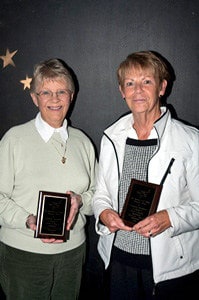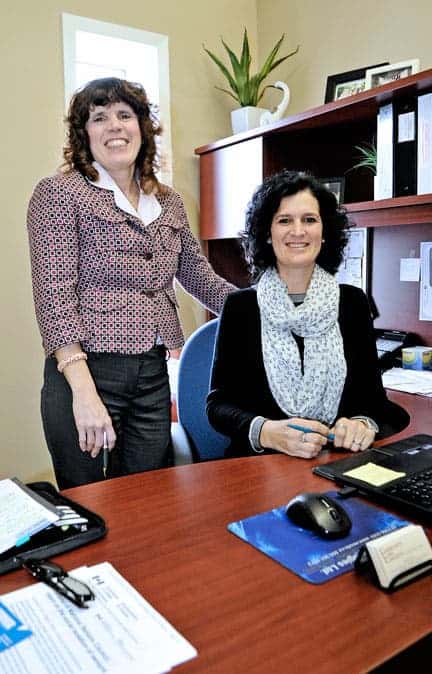It was a full house at Wellesley council Monday night as Hawkesville residents shared their concerns over a proposed rezoning for an expansion at Chervin Custom Woodworks on Geddes Street.
Council decided to defer the rezoning after hearing complaints about noise and traffic and the potential impact on homeowners on Geddes Street, Orville Court, and Broadway Street.
Township planner Geoff VanderBaaren said Hawkesville is identified as a service settlement area, which means it’s a mixed-use area that contains a concentration of single-detached dwellings, as well as commercial, industrial and institutional type uses.
Chervin operates a plant and a yard in the village, and added an addition to their facility last summer. Now, they’re looking to expand again. They need to comply with a number of conditions for council to give them the rezoning. Firstly, they need to justify there’s a need for the additional land.
“In 2012 the township undertook an employment land strategy which identified that the municipality has very little designated ready-to-go industrial or commercials lands,” VanderBaaren said. “We feel the justification is there for adding additional lands. It just comes down to whether this is the appropriate location for that or not.”
Council must also consider the agricultural and environmental factors. VanderBaaren said they could never have intensive agricultural purposes on the property, thus the agricultural impact is small. There are no environmental features, such as woodlots or wetlands on the lands either. The final consideration is lot servicing. Given the space available, a little over nine acres, he said he doesn’t anticipate any issues with providing a private well and septic if there was a building in the future.
“The dry industrial commercial designation is what they’re asking,” VanderBaaren said. “It specifies that those types of uses generally provide for a range of light industrial uses. They’re typically low water use, so you’d only really have washroom facilities for the employees. Their processes wouldn’t include anything that required water as primary use.”
It also has to be deemed not to be obnoxious, defined as excessive odour, dust, noise, fumes, or vibrations. A noise consultant will determine what the existing sound level is in the community to compare it to the work being doing by Chervin. VanderBaaren says it will be relatively low, certainly less than on a busy road in Kitchener or Waterloo.
The Ministry of the Environment also requires they look at land-use guidelines to see what an appropriate distance is between two incompatible land uses, like Chervin’s and neighbouring homes.
“There are a number of considerations,” VanderBaaren explained. “They work on a class of industries. Class 1 is a really benign industrial use, operates during the day, doesn’t have much traffic coming in and out. Class 2 industry would operate a step above that. It may operate in shifts. There would be a little more traffic coming in and out of the property. It also may have outdoor storage.”
The MOE says for a Class 1 industry there’s an impact at 70 metres. That 70 metres can be reduced to as low as 20 metres through some kind of mitigation, like a noise berm. He said they’ve recommended there be the 20-metre setback for this property, with a three-metre berm around the property.
Kirby Martin lives directly north of the land in question on Geddes Street. He submitted a letter of concern to council signed by numerous residents affected by their proximity to the woodworking operation.
“There is huge anxiety over the industrialization of Hawkesville,” Martin said. “We have serious concerns about the potential impact on the quality of life for our residents. Many of them settled here to enjoy the benefits of family life in a rural village with a safe, serene mix of homes and smaller family businesses.”
Jennifer Burkholder lives just east of Chervin’s on Orville Court. There’s a berm on her property, but because of different terrain grades between her property and Chervin’s, and an increase of work at the plant, it’s no longer sufficient, she says.
“Due to the shifts that are taking place through the night, there is noise that is being carried on past 7 o’clock in the evening, and therefore the noise is now influencing people like ourselves,” Burkholder said. “That berm was put there originally by the developer and was made for that property and not for Chervin’s. According to his grade there’s no berm on his property. The berm is on my property and it’s not to the three-metre grade of the noise.”
Debra Sargent lives on Geddes Street and also expressed concerns over the new night shift.
“Was night shift in consideration when they classified it as Class 1 or did they go by this proposal that only said daytime shifts?”
Daytime hours are considered from 7 a.m. to 7 p.m., and anything going on outside of those hours is treated at a different level, VanderBaaren said.
He added it’s a bit of a judgment call in terms of when you tip over from a Class 1 to a Class 2, and that’s something he would differ to a noise expert.
“We’re still sorting out the noise considerations, that’s one of the big things we need to look at it. Access to Geddes Street is something that the public works department has considered,” VanderBaaren said.









